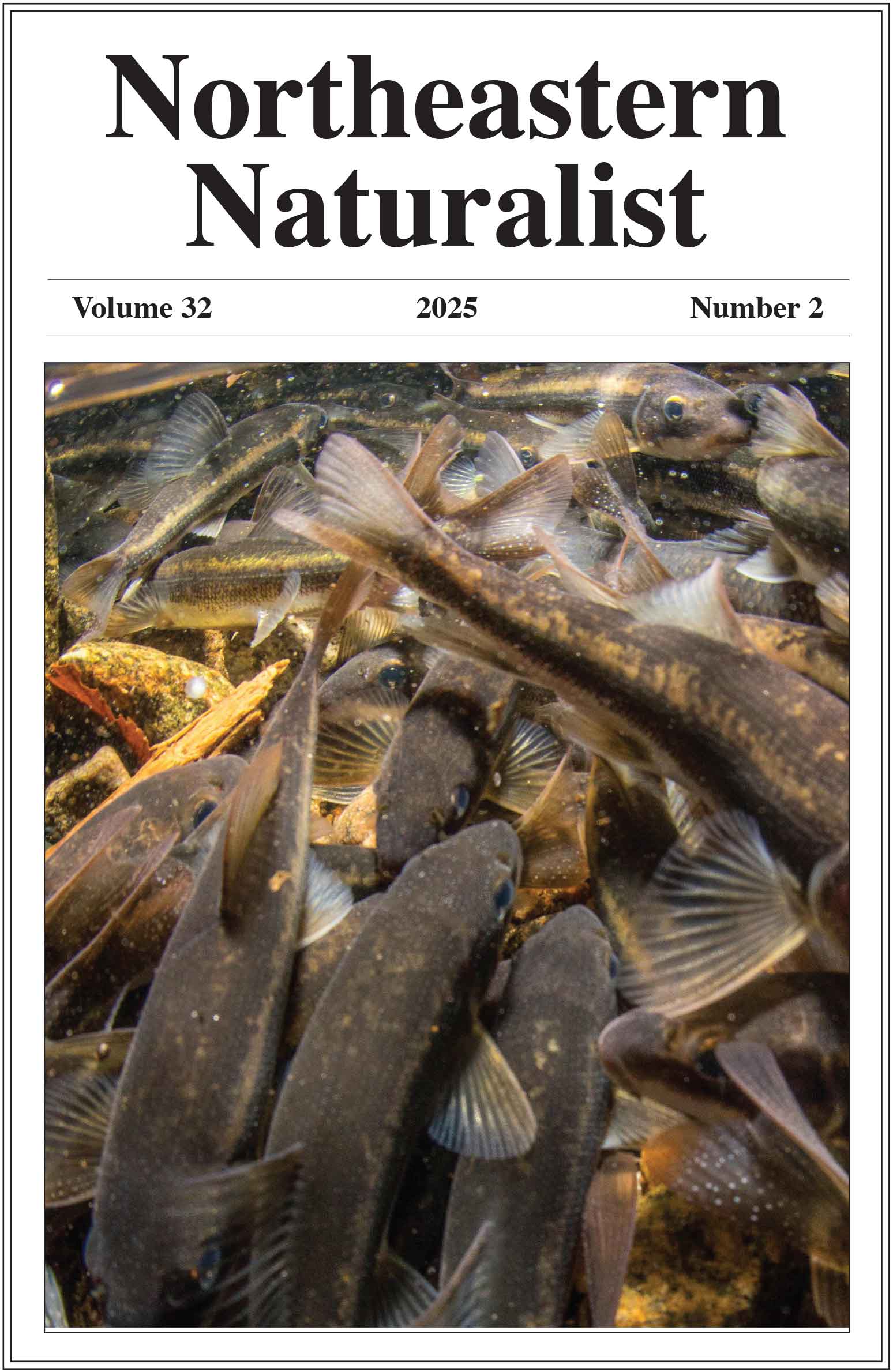Later Year Retention of Evergreen Leaves Is Important to Plant Growth and Survival in Eastern White Pine
Richard B. Primack*
*Department of Biology, Boston University, 5 Cummington Mall, Boston, MA 02215.
Northeastern Naturalist, Volume 32, Issue 1 (2025): 114–126
First published early online: 29 March 2025
Abstract
Temperate evergreen species may gain a physiological advantage through the ability of evergreen leaves to carry out photosynthesis for more than 1 growing season and during the winter season. I tested this hypothesis experimentally using Pinus strobus (Eastern White Pine) saplings, which produce needle-shaped leaves in late spring that typically last 3 growing seasons. Plants with leaves removed each winter (experimentally deciduous saplings) grew much slower after 1–2 years, and 100% died after 3 years, in contrast to only 5% of control plants dying. Plants with leaves lasting 2 years (shortened leaf lifespan) survived similarly to control plants and had intermediate growth rates. This experiment demonstrates that retention of evergreen leaves during the later years of their lifespan is critical to the survival and growth of evergreen Eastern White Pine saplings.
![]() Download Full-text pdf (Accessible only to subscribers. To subscribe click here.)
Download Full-text pdf (Accessible only to subscribers. To subscribe click here.)
Access Journal Content
Open access browsing of table of contents and abstract pages. Full text pdfs available for download for subscribers.
Issue-in-Progress: Vol. 32 (3) ... early view
Check out NENA's latest monograph and Special Issue:













 The Northeastern Naturalist is a peer-reviewed journal that covers all aspects of natural history within northeastern North America. We welcome research articles, summary review papers, and observational notes.
The Northeastern Naturalist is a peer-reviewed journal that covers all aspects of natural history within northeastern North America. We welcome research articles, summary review papers, and observational notes.